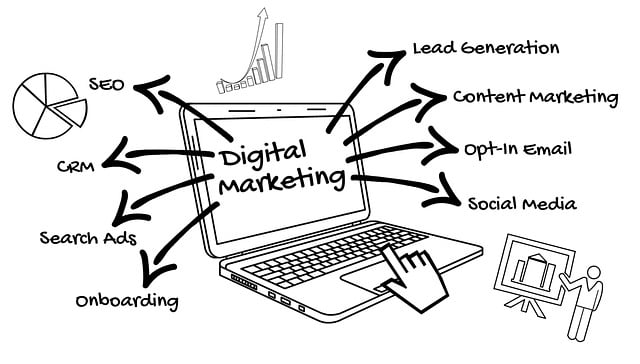AI contract lifecycle automation platforms are revolutionizing residential real estate by leveraging machine learning algorithms to analyze historical data, market trends, and socio-economic indicators. These tools streamline processes like property valuation, risk assessment, and customer segmentation, reducing errors and enhancing efficiency. As a result, real estate agents can focus more on client interactions, adapting to market changes while making informed decisions based on AI-driven insights into neighborhood patterns and emerging trends. These platforms transform trend forecasting, enable faster data analysis, and unlock strategic opportunities for developers, investors, and urban planners through hidden pattern recognition in property listings and social media sentiment.
“Explore the future of residential real estate with an in-depth look at AI’s transformative role in neighborhood trend forecasting. This article delves into how advanced technologies, particularly AI and contract lifecycle automation platforms, are reshaping market dynamics. We examine their combined impact on predicting and shaping urban landscapes. From data analysis to trend identification, these tools offer unprecedented insights, unlocking potential for developers, investors, and communities alike. Discover how AI-driven predictions can guide future neighborhood development.”
- Understanding AI's Role in Residential Real Estate Trends
- The Impact of Contract Lifecycle Automation Platforms on Neighborhood Forecasting
- Unlocking Future Neighborhoods: AI-Driven Trend Predictions
Understanding AI's Role in Residential Real Estate Trends

Artificial Intelligence (AI) is transforming the residential real estate industry, offering unprecedented insights and predictions about neighborhood trends. By leveraging machine learning algorithms, AI contract lifecycle automation platforms can analyze vast amounts of historical data, market dynamics, and socio-economic factors to identify patterns and emerging trends. This capability enables real estate professionals to make data-driven decisions, anticipate market shifts, and stay ahead of the competition.
AI’s role extends beyond trend forecasting; it streamlines processes like property valuation, risk assessment, and customer segmentation. Contract lifecycle automation platforms, powered by AI, can automate routine tasks, reduce errors, and improve efficiency. This not only saves time and resources but also allows agents to focus on providing personalized services, fostering stronger client relationships, and adapting to the ever-evolving residential real estate landscape.
The Impact of Contract Lifecycle Automation Platforms on Neighborhood Forecasting

The integration of AI contract lifecycle automation platforms has significantly enhanced neighborhood trend forecasting in residential real estate. These advanced systems streamline and optimize the management of property contracts, providing valuable insights into market dynamics. By automating key processes such as document preparation, negotiation, and execution, they reduce manual errors and enable faster analysis of large volumes of historical data. This wealth of data includes contract terms, pricing trends, and client preferences, all of which contribute to a deeper understanding of neighborhood developments and emerging patterns.
Moreover, AI automation platforms can identify complex correlations between various factors—from demographic shifts to economic indicators—that influence local real estate markets. This capability allows forecasting models to become more accurate and adaptable, enabling agents and investors to make informed decisions. With the ability to predict future trends, these platforms are revolutionizing how professionals navigate the residential property landscape, fostering a more efficient and strategic approach to neighborhood development and investment opportunities.
Unlocking Future Neighborhoods: AI-Driven Trend Predictions

The future of neighborhoods is being reshaped by artificial intelligence, revolutionizing the way we predict and understand residential real estate trends. AI contract lifecycle automation platforms are not just streamlining administrative processes; they’re also providing valuable insights into consumer behaviors and market dynamics. By analyzing vast amounts of data from various sources—from property listings to social media sentiment—these platforms can identify emerging patterns and indicators that were previously invisible to the naked eye.
This advanced capability allows developers, investors, and urban planners to “unlock” future neighborhoods by making data-driven decisions. They can anticipate shifts in demographics, understand evolving lifestyle preferences, and even predict the success of new developments before they’re built. As AI continues to integrate into our lives, its role in shaping the communities we live in will only grow more significant.
As we look towards the future of residential real estate, it’s clear that AI and contract lifecycle automation platforms are revolutionizing neighborhood trend forecasting. By analyzing vast datasets and complex patterns, these technologies enable more accurate predictions about housing market shifts, demographic changes, and urban development. This enhanced foresight empowers developers, investors, and policymakers to make informed decisions, fostering smarter and more sustainable communities. Embracing AI-driven trend analysis is no longer an option but a necessity in today’s dynamic real estate landscape.
